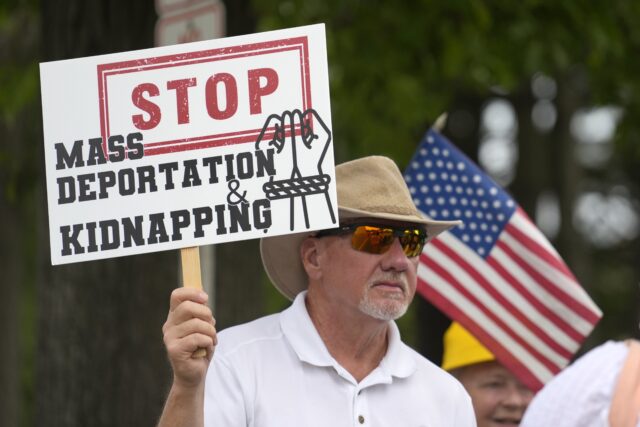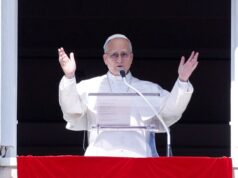
The mass deportation of irregular migrants continues to grow in momentum. Richly funded by the recently passed “Big Beautiful Bill,” it is increasingly apparent that the targets for these enforcement actions are not only “bad actors,” criminals that no one wants loose on our streets, but also hard working, honest people — many of whom have been in this country for decades — paying taxes, raising families and contributing to the common good of our nation.
In Victor Hugo’s famous 19th-century novel, “Les Miserables” (perhaps more familiar to many in a modern musical version, Les Mis), motivated by bitterly zealous legalism, Inspector Javert relentlessly pursues Jean Valjean, who had spent years in prison for stealing a loaf of bread.
Today, modern day Javerts bent on enforcing a broken and thus unjust immigration regime are deporting agricultural, construction, service and hospitality workers who have an irregular immigration status. As a result, various personalities in the government and the news media fan flames of resentment against these supposed law breakers, equating them with terrorists intent on hurting us.
I deliberately describe these migrants as “irregular” migrants, and not as undocumented or illegal, because the majority of them have some type of documentation or even legal status — albeit a temporary legal status — and most are not guilty of any serious crime.
Justice must be more than a cold and impersonal calculation of the narrow legalism of an Inspector Javert.

Justice is first and foremost a virtue. The Catechism of the Catholic Church describes the virtue of justice as “the constant and firm will to give their due to God and neighbor.” In other words, justice is the virtue by which we turn outward toward God and to other people, to affirm their fundamental dignity and strive to act in accord with their true good.
[From the USCCB: Catholic Social Teaching on Immigration]
To be a just man or woman is to be a person who turns outward to other people seeing them as God sees them, which is of course with perfect and unwavering charity.
Today, many take umbrage at the Catholic bishops’ advocacy on behalf of the irregular migrant, but in doing so, we stand in a proud moral tradition that holds positive laws that promote both the common good and the good of the individual in society.
This is what Jesus meant when he said the Sabbath was made for man and not man for the Sabbath. As St. Augustine is attributed to have said, “an unjust law is no law at all,” which is why we, a nation of laws, can honor law breakers like the patriots of the Boston Tea Party and allow the dignified defiance of Rosa Parks in her act of law breaking to touch its conscience.
We can be a nation of laws, without becoming a nation of Javerts. As Jesus reminded the embittered zealots of his day, positive laws, even divine positive law like the Sabbath observance, are designed for the benefit of man, not to harm humankind.
The present enforcement-only approach aggravates the polarization of our body politics, and it causes irreparable harm to many families whose loved ones are rounded up, detained and ultimately deported to countries that they have not known in many cases for decades.
Ultimately, this will not work for the benefit of America. Rather than just busying itself with enforcing flawed immigration laws, the administration should work with Congress to change the laws.
This is why the bishops have long advocated for a comprehensive immigration reform, one that would address the need for a legal labor force, aid in family reunification and provide a path to citizenship for those who have resided and worked here in the U.S.
Also, border “walls” should also have “doors” that would permit the flow of legal immigrants. Catholic teaching does recognize that nations have a right to control their borders, but these same teachings urge richer nations to be generous in admitting those fleeing persecution or seeking conditions worthy of human life.
America has shown such generosity in the past and is certainly capable of continuing to do so today.
Archbishop Thomas G. Wenski leads the Archdiocese of Miami.












